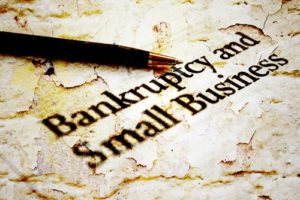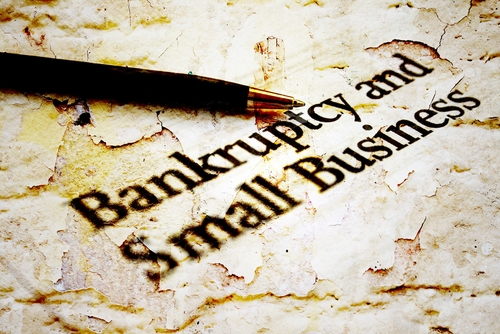Did you know that the average business lasts about ten years?
 When businesses reach this milestone, the owners must determine whether the company has a chance of surviving the next decade. It may be an option to file for bankruptcy, but this isn’t always as bad as it sounds.
When businesses reach this milestone, the owners must determine whether the company has a chance of surviving the next decade. It may be an option to file for bankruptcy, but this isn’t always as bad as it sounds.
When a business files for bankruptcy, many think it means they have no money and must close down. This isn’t always the case; sometimes, it’s a wise financial choice.
Keep reading to learn about business bankruptcy options for business owners.
Different Types of Business Bankruptcy
Many businesses have investors, and with that comes a responsibility to pay them back. When a company can’t do this, it’s common to file for corporate bankruptcy.
There’s more than one type of corporate bankruptcy, and the most suitable type for your situation will depend on various factors. In most situations, a business will likely file for either Chapter 7 or Chapter 11 bankruptcy. Each case is different, as is the outcome.
Chapter 7 Bankruptcy
If your business files for Chapter 7 bankruptcy, it will immediately stop all operations and go out of business. An appointed trustee will then liquidate (sold all company assets made through this liquidation are then used to pay off the remaining debts.
When this happens, the assets might not generate enough money to pay off all the company’s debts, so they’re prioritized to decide which debts are paid first. Different investors may sign up with varying levels of risk, and those with the lowest risk are generally the first ones paid.
Payment Priority
Bondholders have a reasonably high priority when it comes to paying back debts. By holding bonds, they decided to give up the opportunity to participate in excess company profits, which stockholders would receive. The tradeoff is that the bonds provide safer, regular interest payments.
Stockholders have gone for what could be considered a “higher risk, higher reward” investment. They can receive greater returns as they’re entitled to a portion of a company’s profits. However, this does come with the risk that their stock could lose a lot of value.
If you file for Chapter 7 bankruptcy, you might be unable to compensate your stockholders fully. Anyone who holds stocks may not be happy with this outcome, but that’s a risk when choosing to invest in stocks.
A principle is known as “absolute priority” dictates that secured creditors are the first to be paid back, even before bondholders. They have the most secure form of investment, but with this comes the lowest interest rates and, therefore, the lowest potential profits.
Chapter 11 Bankruptcy
Chapter 11 bankruptcy is an option that involves reorganizing your business rather than liquidating it. The idea is that you’ll change your business structure and then return to normal business operations. A company is likely to go down this road if it’s struggling to manage its debts and needs to restructure them.
Many people opt for Chapter 11 if they’re struggling but want to keep their business running. It allows for a fresh start and can help ensure that you can pay back your investors. This is one of the main benefits of business bankruptcy if you go down the Chapter 11 route, as it presents the opportunity to rebuild your business and continue growing.
Public companies tend to opt for Chapter 11 bankruptcy over Chapter 7 to continue operating while working through the bankruptcy process. They can then restructure their financial framework to once again become profitable, rather than having a trustee proceed with the company’s liquidation.
What if it Fails?
It’s important to note, however, that Chapter 11 bankruptcy is the most expensive bankruptcy type, and it can be very complex. You should only look towards this method if you’ve already considered your other options.
During the Chapter 11 process, a committee is assigned to the company to work in the best interests of the investors. They can help the company develop a plan to return to a profitable state and pay back all debts. Shareholders can also have some input on this plan, but if no viable plan is found, the company may be liquidated, regardless of what the shareholders want.
If a company goes for Chapter 11 bankruptcy and fails, it’ll go through the Chapter 7 process of liquidation to pay off debts according to the absolute priority principle.
Other Types of Bankruptcy
At Ryan J. Really Attorney at Law, we focus mainly on Chapter 7 bankruptcy, but there are other business bankruptcy options you might be able to choose if need be.
Chapter 13 bankruptcy involves reorganizing a business’ debts through the courts to create an affordable payment plan. It can help eliminate unsecured debts (such as credit cards). It’s also helpful in paying back debts on secured assets like properties or vehicles.
Chapter 12 bankruptcy is an option similar to Chapter 13, but this type only applies to family farms. The idea is that it allows a farm to reorganize and pay off its debts while staying in business. This particular type is available as it factors in seasonal issues and agriculture’s unpredictability, which isn’t an issue for other industries.
How Bankruptcy Affects Investors
Any time a person invests in a company, they do so because they think it will be successful and generate positive returns. With that being said, there is always a risk with any investment, so anyone who chooses to invest does so, knowing that they may end up losing money.
In most cases, people can continue to trade stocks and bonds when a company enters bankruptcy. Most of the time, however, the value of these will drop significantly, and the worse state a company is in, the closer these assets will be to $0.
When the value drops, investors may have to decide between selling for a loss or holding on in the hopes that the company will recover. If a company goes under, an investor’s assets may be worth nothing.
Chapter 11
During Chapter 11 bankruptcy, stockholders will stop receiving dividends. They may need to return their stocks in exchange for newly reorganized company shares. Sometimes they’ll receive fewer shares and have a lower value, depending on the reorganization plan.
Bondholders will also stop getting principal and interest payments and may receive new stock in place of their bonds. Whatever the outcome, in almost all circumstances, the investors will make a loss, whether from getting nothing back or receiving shares at a lower value.
Chapter 7
Investors will be worse off during Chapter 7 bankruptcy – what they receive back will depend on what assets are available and the type of investment they’ve made. A bondholder may receive a small amount of their investment back, but usually just a fraction. The stocks of a company here will almost always become entirely worthless, and, likely, they’ll never be fully paid back for their investment.
As discussed above, secured creditors are the most likely to get their investment back, meaning they’re in the best position if this happens.
How to Declare Bankruptcy
Ryan J. Really Attorney at Law specializes in helping people struggling with large amounts of debt. To declare business bankruptcy, you first must acquire and organize various financial documents. We can then discuss your options and help you decide what’s best moving forward.
We’ll determine if you’re better off going with Chapter 7 or Chapter 11 bankruptcy. We’ll also look at other options to see if there’s anything that’s more viable. From there, we can develop a plan to ensure the best course of action is taken.
Should My Business Go Bankrupt?
No one enters the business world expecting one day have to file for bankruptcy, but sometimes these things cannot be avoided. If you’re in this situation, you shouldn’t panic. The best thing you can do is assess your options and then choose the most viable solution.
At Ryan J. Really Attorney at Law, we can help guide you through business bankruptcy, looking at your options and deciding the best way to proceed. We also assist in various other cases involving debt negotiation and foreclosure defense.
We can provide free case evaluations through our website. If you have any questions about our services, contact us today and find out how we can help you.


